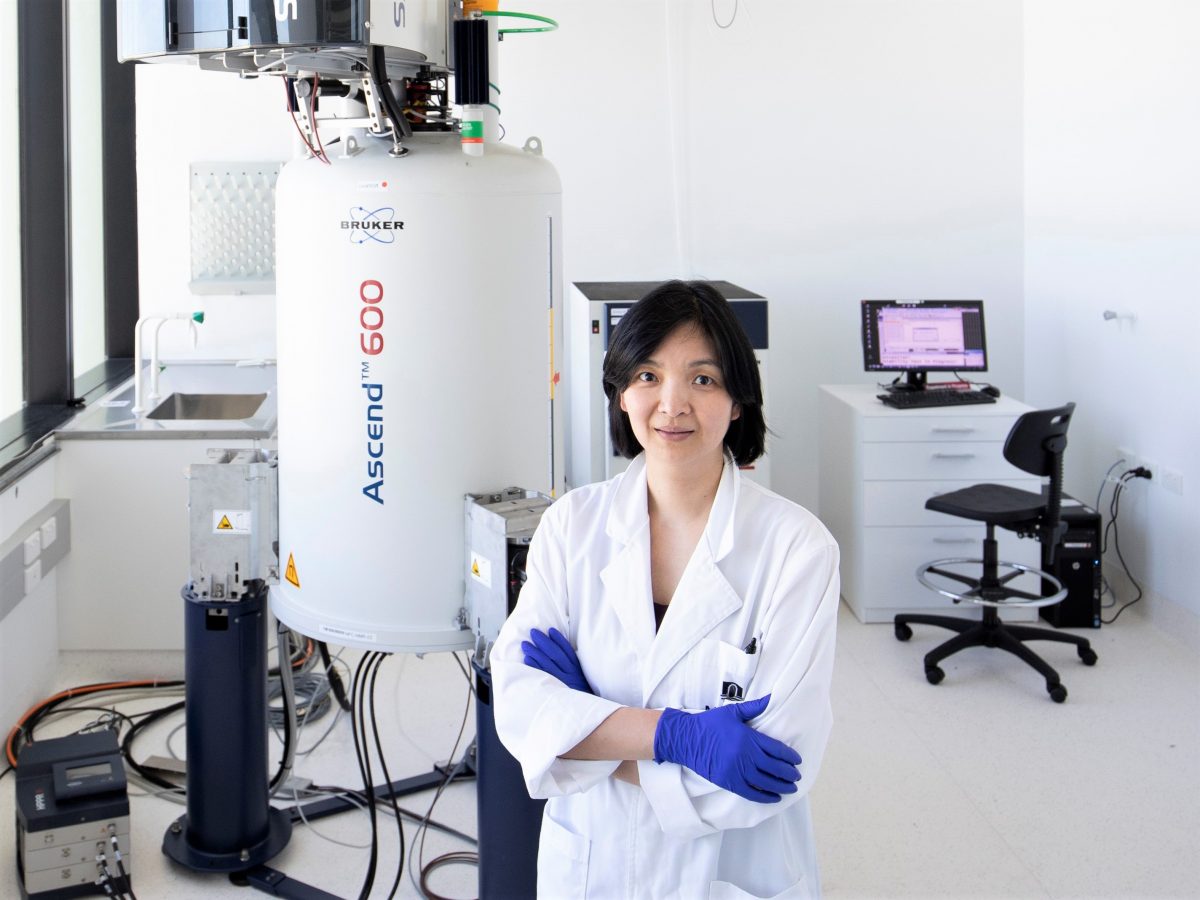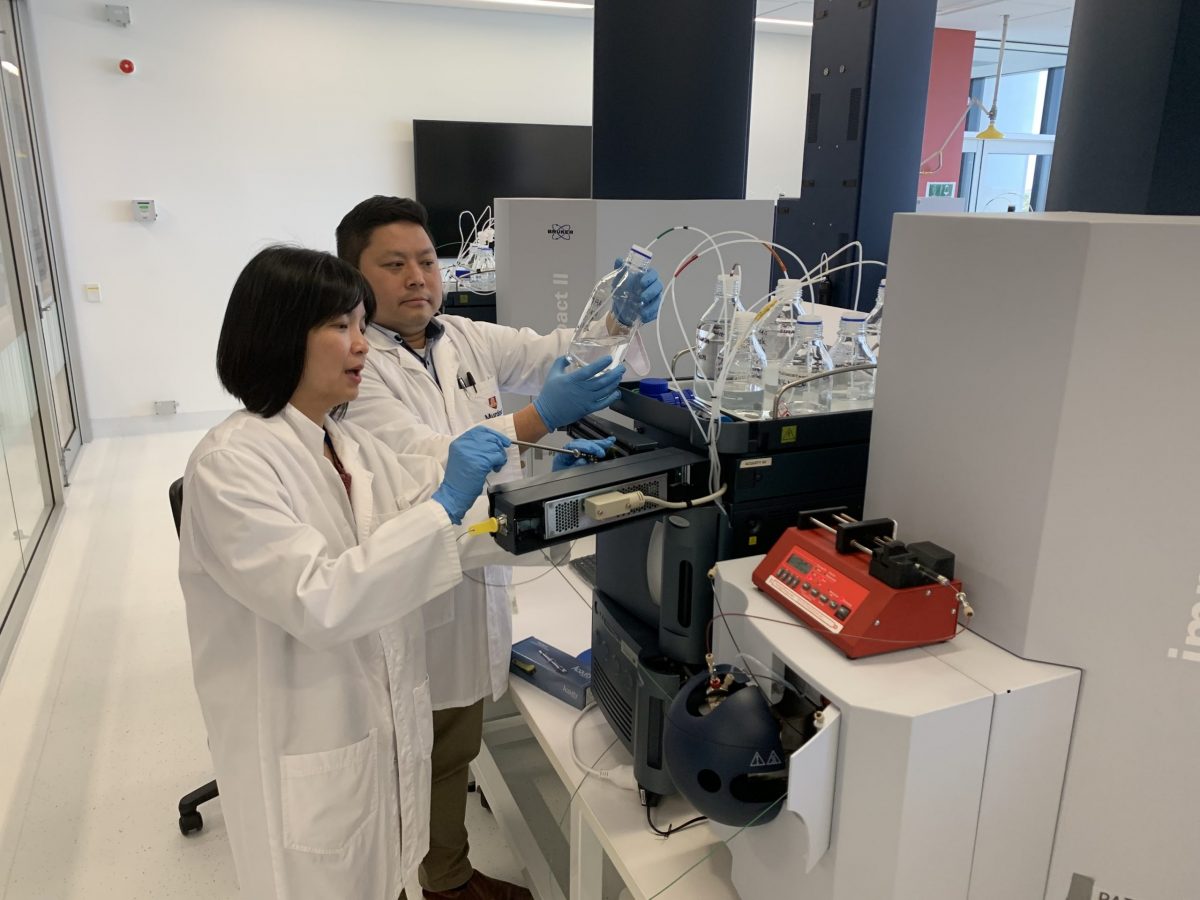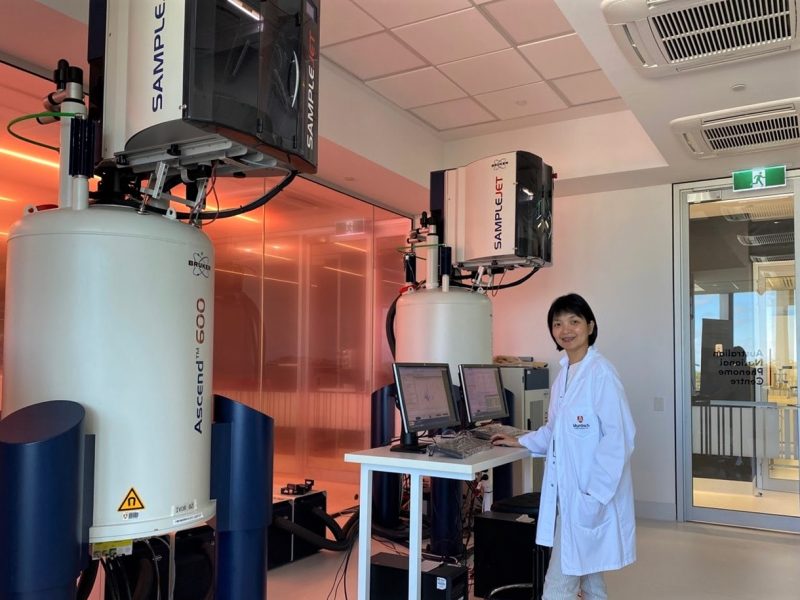Dr Ruey-Leng Loo is a clinical pharmacist who is focusing her clinical expertise on the application of metabolic phenotyping in epidemiological and nutritional studies. She is based at the Australian National Phenome Centre on Murdoch University’s Perth campus.
Right now, Dr Loo is working across the CRC’s Research Program 3 and is actively involved in all its activities. She applies cutting-edge analytical instruments to provide a translational bridge to the food science industry, and to offer solutions for optimising individual health.
From Imperial College London to Murdoch University at the ANPC
Following a Bachelor in Pharmacy (Hons) from Bradford University and an MSc in Clinical Pharmacy from Cardiff University, UK, Dr Loo worked in clinical pharmacy at various UK National Health Services before undertaking doctoral studies in metabolic phenotyping at the prestigious Imperial College, London.
After completing her PhD in Biological Chemistry, Dr Loo was appointed as a Clinical Lecturer in Pharmacy at the Medway School of Pharmacy, University of Kent. She was promoted to Senior Lecturer before moving to Murdoch University in 2019 to take up the Western Australia Premier’s Mid-Career Research Fellowship award from the Western Australian Government.
Dr Loo has attracted research funding both nationally and internationally, including a USA National Institute of Health Grant, a UK Medical Research Council New Investigator Grant, the Chinese Academy of Science President’s International Fellowship Initiative.
Since her relocation to Perth, she has continued to receive external research funding in excess of $5 million. This includes a WA Government COVID-19 Response Grant and funding from the Spinnaker Health Research Foundation, the McCusker Charitable Trust and the Channel 7 Telethon Trust.

Dr Ruey-Leng Loo in the lab at the Australian National Phenome Centre on Murdoch University’s Perth, WA campus. Dr Loo is the research lead on the ‘Bioactive components for value-add to Australian artichokes’ project under the CRC’s Research Program 3. Credit: Murdoch University
Research focus on precision nutrition
Dr Loo’s expertise lies in metabolic phenotyping (‘fingerprinting’). This uses analytical instruments such as mass spectrometry and nuclear magnetic resonance spectroscopy to generate unique ‘fingerprints’ of biological samples such as urine and blood, obtained from epidemiological and nutritional intervention studies.
Using the fingerprinting information, Dr Loo aims to better understand the complex interaction between an individual phenotype and the gut bacteria. So far she has observed large differences in the metabolism, in terms of dietary response, from country to country as well as within populations. In a well-designed randomised dietary intervention study, she further demonstrated large differences between individuals in several clinical risk factors, such as blood pressure, even though these individuals had consumed the same healthy diets.
“The fact that we all respond differently to the food that we eat suggests some of these differences may be attributed to the bacteria in our gut, and that the ‘one size fits all’ approach is not going to work for everyone,” Dr Loo says.
“My research aims to apply fingerprinting strategies to transform these complex fingerprints into meaningful information that can offer better healthcare solutions to individuals and populations. In particular, to explore the feasibility of personalised nutrition for disease management and prevention.”

Dr Ruey-Leng Loo in the lab with Dr Sung Tong Chin, a mass spectrometry specialist working, at the ANPC. Credit: Andrea Orlowsky
Extending fingerprinting approaches to food science
Dr Loo has expanded her research to apply the same analytical techniques to provide detailed fingerprints of foods and food products. She is leading a four-year CRC project with industry partner Mt Lindesay to analyse globe artichoke cultivars at the molecular level and to determine their health-benefiting properties. In particular, the team is analysing satiety-boosting inulin to guide future commercialisation activities.
“By generating detailed fingerprint information of the food that we eat, we can establish what the goodness of the food is. We can use this information to compare different food products and examine how to maintain the nutritional value,” Dr Loo says.
“This ‘fingerprinting’ approach will have many applications for the food industry. It will enable industry partners to monitor and verify food quality, underpin the commercialisation of high-value nutraceutical food products, and offer a translational bridge to the food science industry,” says Dr Loo.
“It will also enable stakeholders anywhere along the supply chain to ascertain food and food-product attributes such as composition, quality, contamination, authenticity and nutritional efficacy.”
“Ultimately, I aim to develop an easy-to-use, robust and high-throughput system that will allow the food industry to incorporate fingerprinting approaches as part of their production systems.”
“It will enable measurement and monitoring of food products in real time,” Dr Loo says.
This will be key to research and development at the new WA Food Innovation Precinct, where Dr Loo will play a key role in advanced food-product analysis.
Further information
For more information about Dr Loo’s research, view her LinkedIn, ORCID, ResearchGate or Google Scholar profiles and her Pubmed publication list.
Lead image: Dr Ruey-Leng Loo in the ANPC Lab. Credit: Murdoch University


